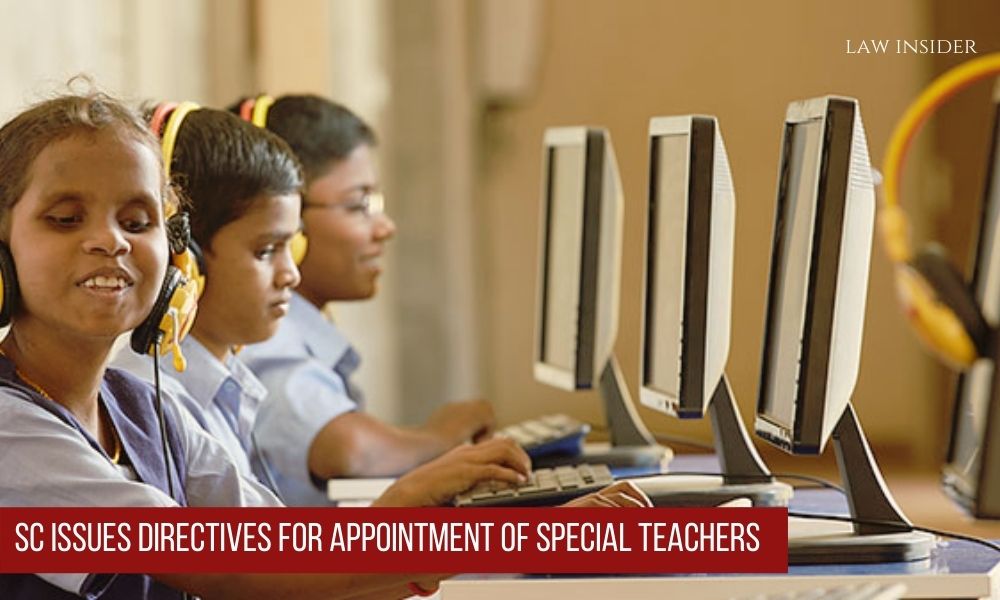Chaini Parwani –
Published On: October 31, 2021 at 14:55 IST
The Supreme Court on Thursday informed all State Governments to fill up vacancy of Special Teachers and Rehabilitation Professionals in schools for Divyang children within six months.
Further the Supreme Court directed the Central Government immediately to Draft norms including Pupil-Teacher ratio in such schools or institutions admitting Children with Special Needs, (CwSN) also referred as ‘Divyang’.
A Bench comprising of Justices A M Khanwilkar, Dinesh Maheshwari and C T Ravikumar observed that until the Proficient Authority formulated a global action plan, as a “Stop-gap arrangement”, the proposal made in 2019 by State Commissioner for persons with disabilities, National Capital Territory of Delhi, should be acquired.
The Bench further directed Notices to the Secretary of Department of Empowerment of Persons with Disabilities, Ministry of Social Justice and Empowerment and Secretary of the Ministry of Education.
Further, the Court while stating that the highlighted discrepancy has to be addressed by National Council for Teacher Education observed that there is a paucity of Rehabilitation Professionals or Special Teachers, recognised and registered by the Council, who exclusively can impart Education and Training to handicap persons or Children with Special Needs (CwSN).
Furthermore, the Court Adjourned the issue for a further Hearing in the first week of March 2022.
The Court passed its Judgement on Petitions filed by Rajneesh Kumar Pandey and others proposing the cause of teachers having Bachelor of Education BEd (special) and Diploma in Education DEd (special) Degree or Diploma Courses and skilled to procure to the prerequisites of Children with Special Needs (CwSN).
The 2019 recommendations fixed a generally accepted pupil-teacher ratio of 8:1 for children with cerebral palsy, 5:1 for children with Intellectual Disability, and specific learning disabilities and 2:1 for deaf and blind.
The Court highlighted that a “Multi-pronged approach” needs to be acquired by the respective authorities with forthwith effect, including to provide Commensurate Permanent Posts as per the just ratio to be specified by Authority for Rehabilitation Professionals or Special Teachers who can procure to the requirements of CwSN.
Further the Court noted that the Rights of Children to Free and Compulsory Education Act, 2009 made no difference between General Schools and Special Schools, but the norms and standards specified for general schools cannot be imitated for special schools, which are authorized by special laws in respect of Rights of persons with Disabilities.
Furthermore, the Court observed that the persons with disabilities in India account for over 2.21 % of the total population, as per 2011 Census figure.
The Court further directed the State Commissioners appointed under Section 79 of the of the Right of Persons with Disabilities Act, 2016, to immediately instigate Suo Motu probe concerning compliance and further to recommend Appropriate Authority.
Click here to Read/Download the Judgement
Also Read: SC orders States to appoint more teachers for Special Schools
Supreme Court to Centre: Ensure Equal Participation of Disabled Students in Online Classes

